Over the years, the Assassin’s Creed franchise has gone from a linear, focused storyline in an open world setting to evolving into role-playing games from the ground up. Although there’s not necessarily anything wrong with an RPG, they tend to stray away from what Assassin’s Creed had started as in more ways than one. Assassin’s Creed Mirage was hyped up to focus on going back to the basics, and it’s become a clear indicator that the RPG genre and Assassin’s Creed do not have to be blended together in order to find success.
That’s not to say that there aren’t aspects of RPG games that are suited very well to the Assassin’s Creed series. The map in Mirage as compared to some of the recent entries like Valhalla or Origins clearly demonstrates a change in the way the game is meant to be played, as well as the general breadth of everything that you’re able to do being more focused and concise. The story’s overall structure is the best example of just how great these games can be, without needing to be set up as RPGs.
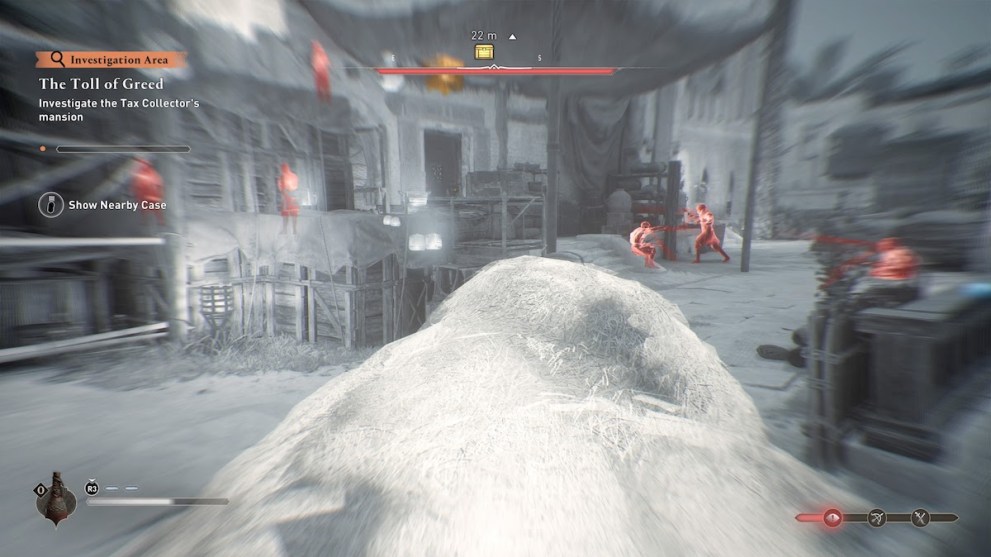
Assassin’s Creed Mirage was expected to return to the franchise’s roots, focusing heavily on using stealth and remaining in the shadows. I’ll be honest, I got pretty used to jumping into a group of at least 12 enemies and coming out without a scratch in the games since Black Flag. Needless to say, the combat in Mirage is not nearly what I was expecting it to be, yet not in a bad way. I’m used to being able to start a fight and end it, but instead I kept finding myself starting fights and having the floor wiped with me before I got a parry in.
Once I started getting annoyed at how badly I was doing in combat, I had to start adjusting my style to using the world around me to my advantage. There are piles of leaves, hay and flowers all over the place, people hang out their linens around every corner and you’ve got a clever trove of gadgets in your pocket, letting you distract and attract enemies in plenty of creative ways. The game doesn’t want you to start massive fights like you could in Black Flag because think about it, if you went around killing hundreds of guards and getting in massive brawls, you’d be historically notorious, and not for being a “Hidden One.”
Mirage shows how you can still have just as strong of an effect on your environment without feeling like you’re a one man army, because you aren’t. You’ve got to focus on some more stealth-based mechanics like hiding bodies and eavesdropping in order to find success, but that doesn’t mean you’re helpless. Instead, you’ve got to outsmart your enemies instead of outgunning them, and it feels so much more satisfying than slicing down a bunch of idiots who don’t know how to fight.
The structure of the investigation tab in the menu is also perfectly suited for Assassin’s Creed. It doesn’t make it feel as though you’re some grand hero in the story of the world that everybody respects, but you’re functioning as a part of a hidden society. You’re supposed to feel like you’re working in the shadows, right down to the old notoriety system and having to rip down wanted posters or bribe the Munadi.
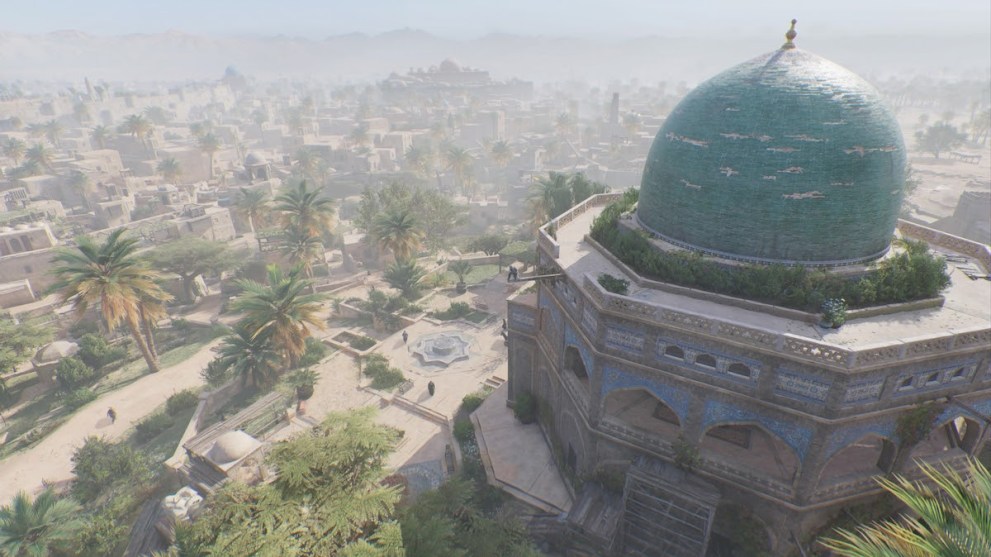
Assassin’s Creed Mirage managed to find what I feel like is a great map size for the franchise. You can’t just wander your way across the whole map in a couple of minutes, but it also won’t take you 120 hours of playtime to find your way to the other side. On top of that, having the option to ride a mount like a camel or horse gives you flexibility to explore Baghdad, pickpocket NPCs and immerse yourself in the world around you without feeling like you’re dragging your feet between missions.
If you get tired of spending time on the ground with the common folk, you can launch your way up the side of a wall and freerun across the rooftops. This also leans back into the roots of the franchise, compared to games like Odyssey that emphasize traveling by a large sea vessel. Mirage is designed around encouraging you to explore up high and down low, having different collectibles in different places and making you try a little bit of everything. You want Dervis’ artifacts? You won’t find them on a rooftop.
You can also escape the clutter of the city and head into some of the less developed areas of the map, which all feel natural and satisfying without feeling like there’s just too much to do. It’s easy to get sidetracked or fatigued in games with maps as large as some Assassin’s Creed games, like Valhalla. Luckily, AC Mirage only really sidetracks you in paths that follow adjacent to your main quest, and even gathering collectibles feels like something that Basim would actually be doing to spend his time.
When you open up the map and see nothing but a sea of icons, it can be tough to find anywhere to actually go because you feel like there are too many other things that require your attention. Sometimes it starts to feel impossible to really get everything out of a game when every time you do something, you know that there’s so much more than you might never even get the chance to see.
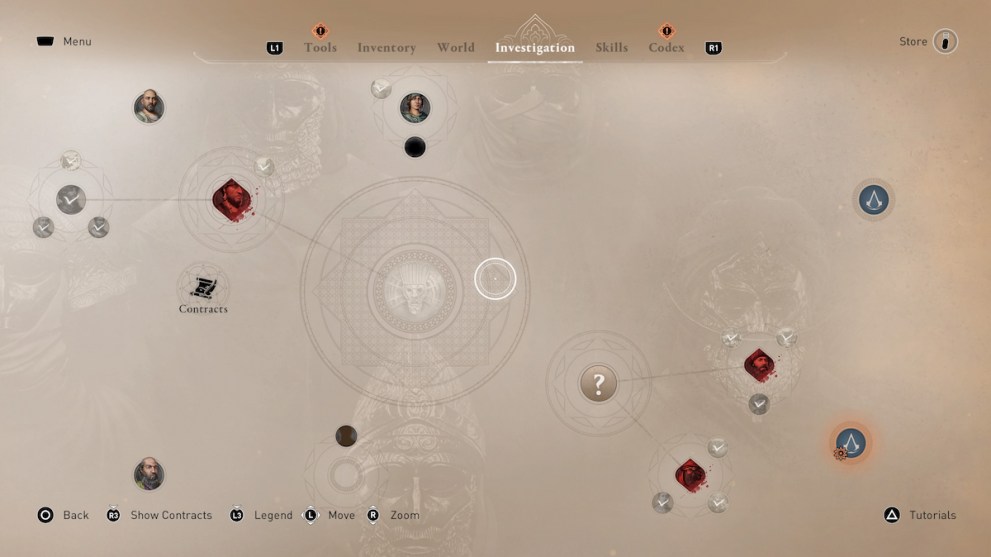
One of my favorite parts of Mirage is the fact that you can do side missions and go off away from the main plot, but it still feels like you’re working toward the same objective. The investigation tab gives the impression of having one central goal with a bunch of concentric goals around it that all lead back in the right direction. That way, you don’t feel like you’re wasting time just helping some guy settle a petty dispute, but you’re having an impact in your overall plot.
The side quests still act as regular story quests, but they aren’t all just chasing down the same person that keeps escaping your grasp. You’ve got to find out all of the people who are in inner circle of the Order, so you’ve got to chase down plenty of leads in order to do so. Each lead is connected to a different aspect of day-to-day living, so as you help the people in the city, you’re still doing the same overall job. It feels like a natural way of getting the player to further the plot without feeling like it’s being shoved down their throat.
It’s not like an RPG in the sense where you’re thrust into the world and told “good luck,” in regards to exploring it. You have access to the whole city whenever you want to run around and see what’s going on in different places, but the difference is that the game works hard not to really give you a reason to go there. You aren’t being blocked by an invisible wall and some text saying, “this area is not unlocked yet,” but you’re allowed to explore — and you get punished for making mistakes in an area you “shouldn’t” be in yet.
That being said, RPGs as a genre have had a profound impact on the series for the better, even without some of those elements being heavily featured in Mirage. The early AC games had significantly smaller maps, and while that was likely more due to technical limitations, they still spawned a whole franchise off of their gameplay and worldbuilding. Now, after having massive games like Valhalla and Origins, Ubisoft was able to dial it back to something a bit more manageable while working in some of the great features that RPGs bring to the table.
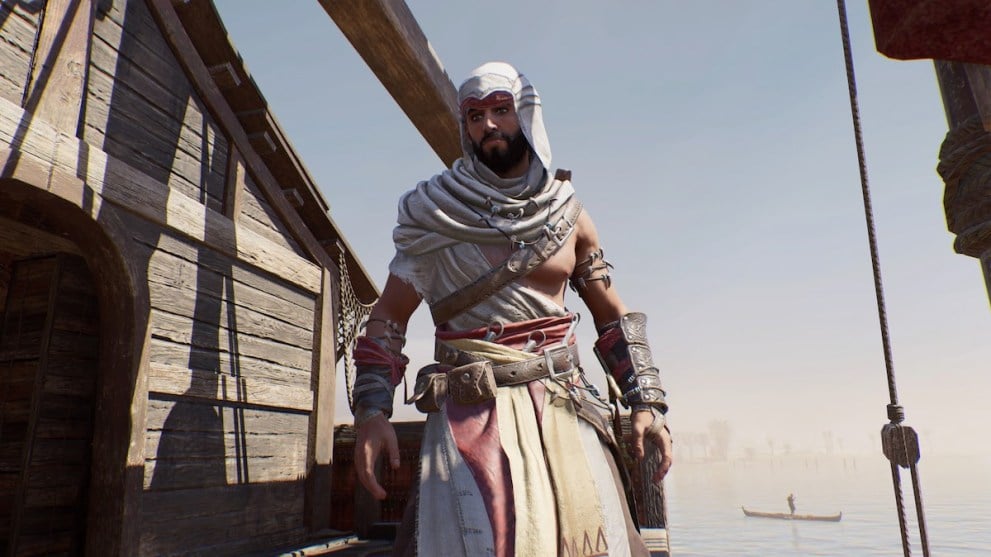
RPGs are great games for people who love a certain level of freedom, and while the AC games aren’t RPGs at their core, they can take a lot away from them. You get skill trees that you can tailor towards your personal play style, customization options to make the character your own and you can often connect better with the character because of how much you’ve put into them. Mirage takes a lot of that and plays with it, while still staying focused around Basim and his individual legacy.
When it comes to customization, Assassin’s Creed isn’t really focused on making the experience “yours” because at its core, you’re living in the shoes of an Assassin in history and it’s their story. You can switch up your outfits, but you can’t change Basim from being Basim because that’s the whole point of the game. Mirage makes you feel like you’re playing his story, but lets you choose just how you want it to play out. While it takes some notes from RPGs as a genre, AC Mirage shows that the franchise can be so much more.
Assassin’s Creed Mirage does a phenomenal job of puling the series back to its roots while implementing some of what has fleshed out the rest of the series to be more than what it started as. You’re made to feel like a Hidden One through more minor actions than a raging naval battle, while still getting to explore a sprawling city and change history. Regardless of where the series goes next, it should be equipped with plenty of successful mechanics to really set itself apart even further.

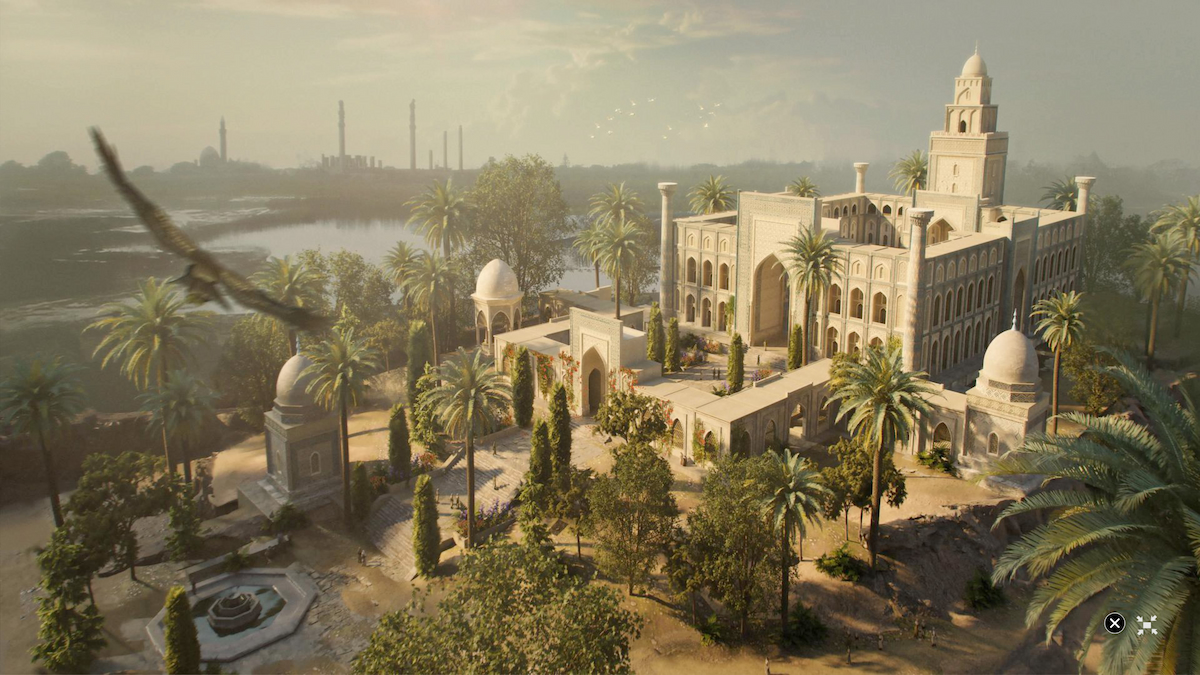
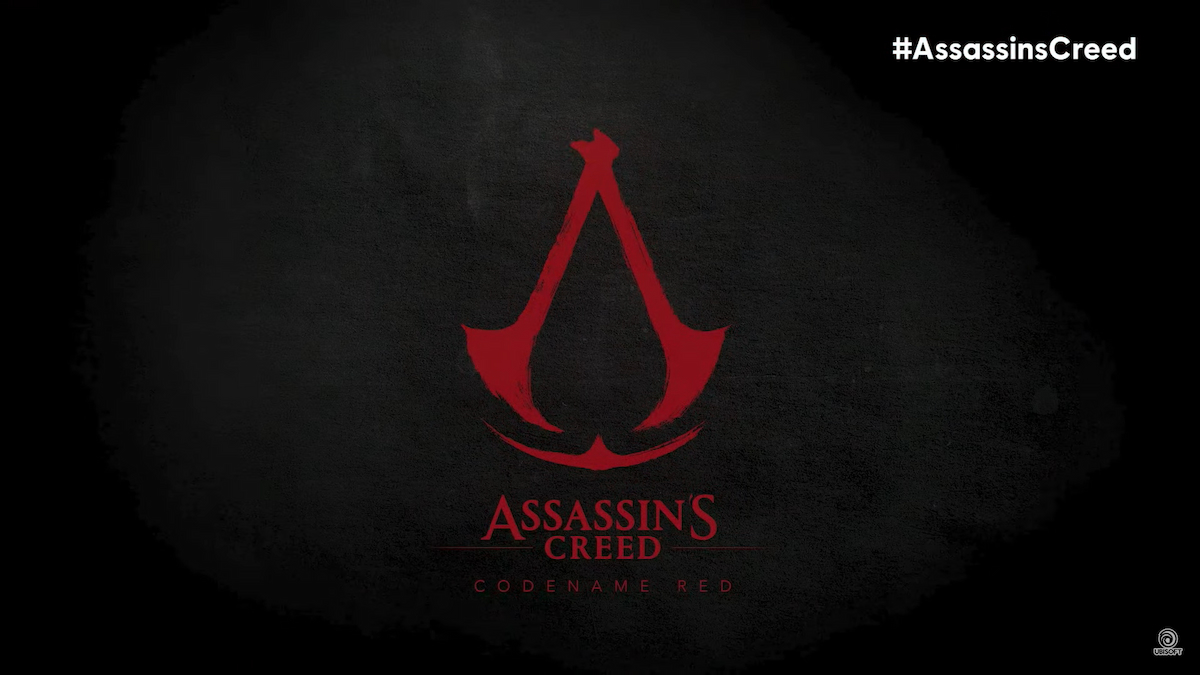
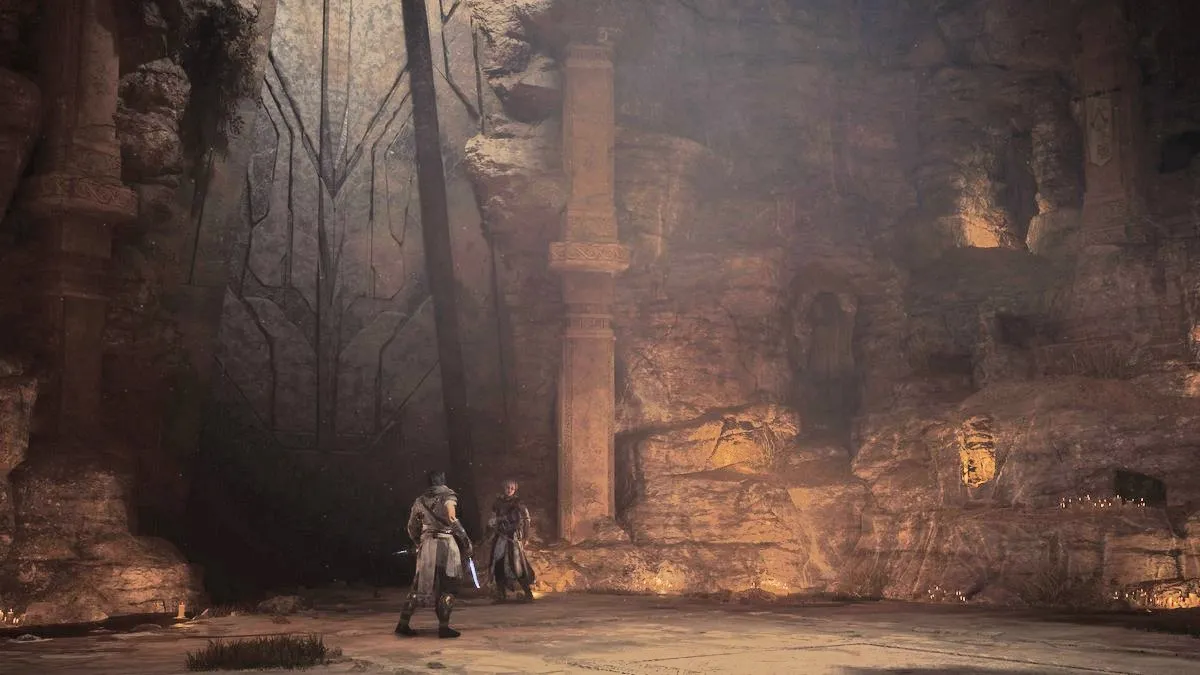



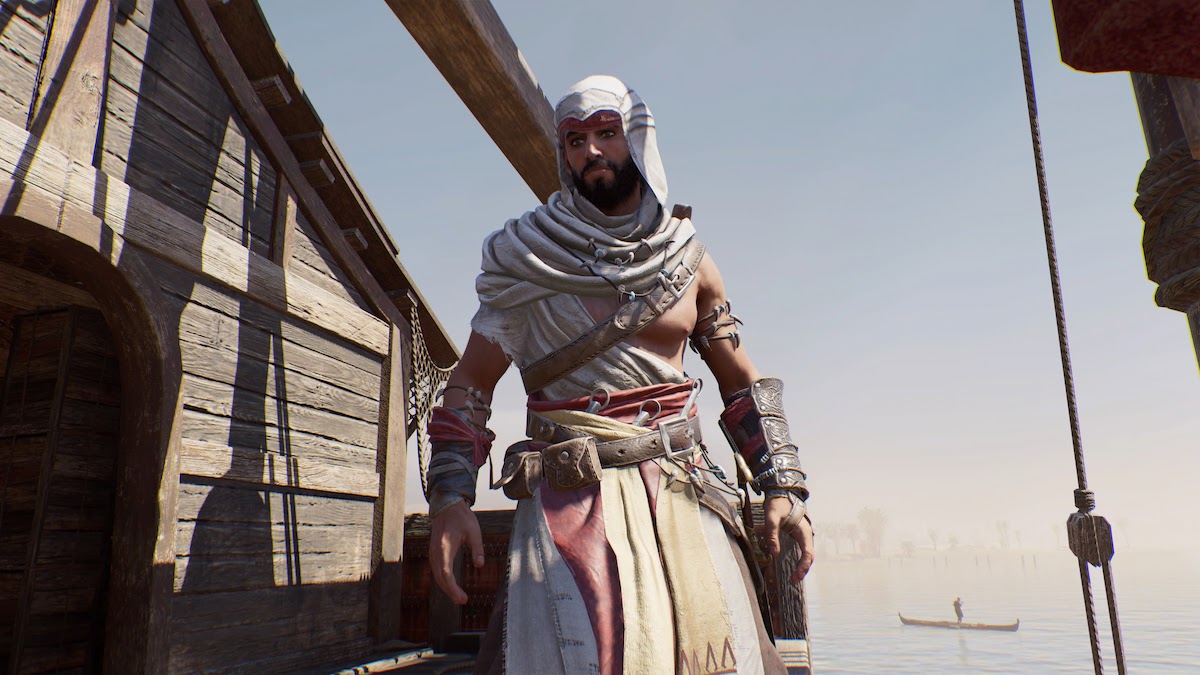
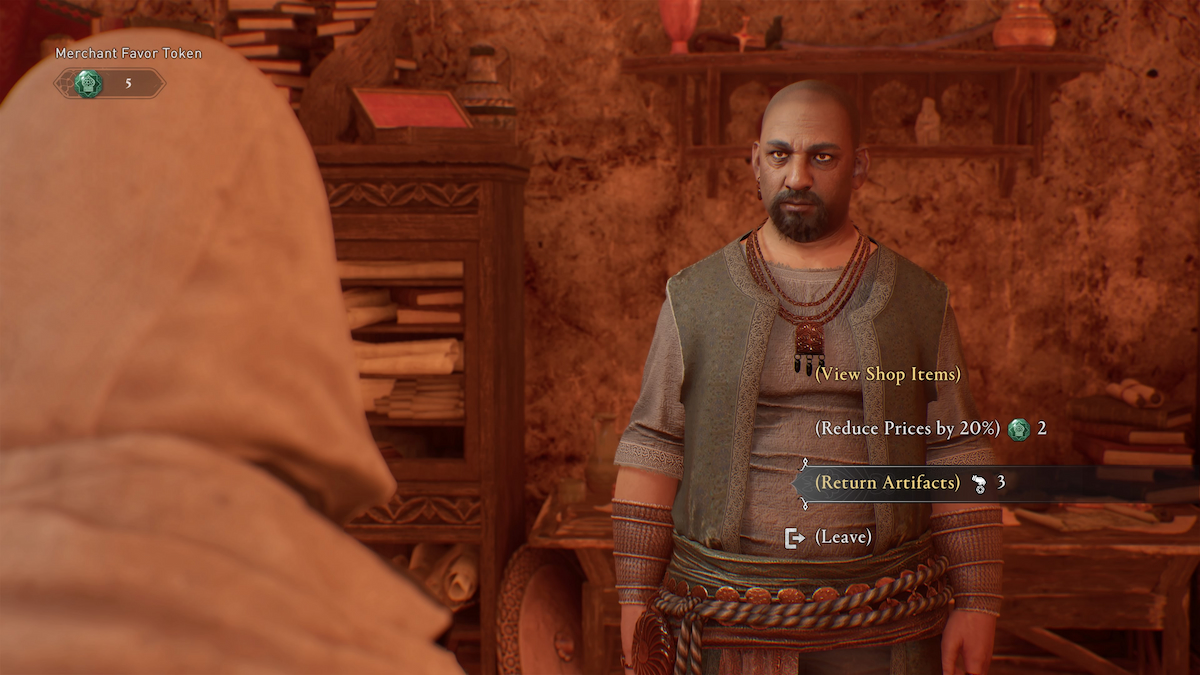
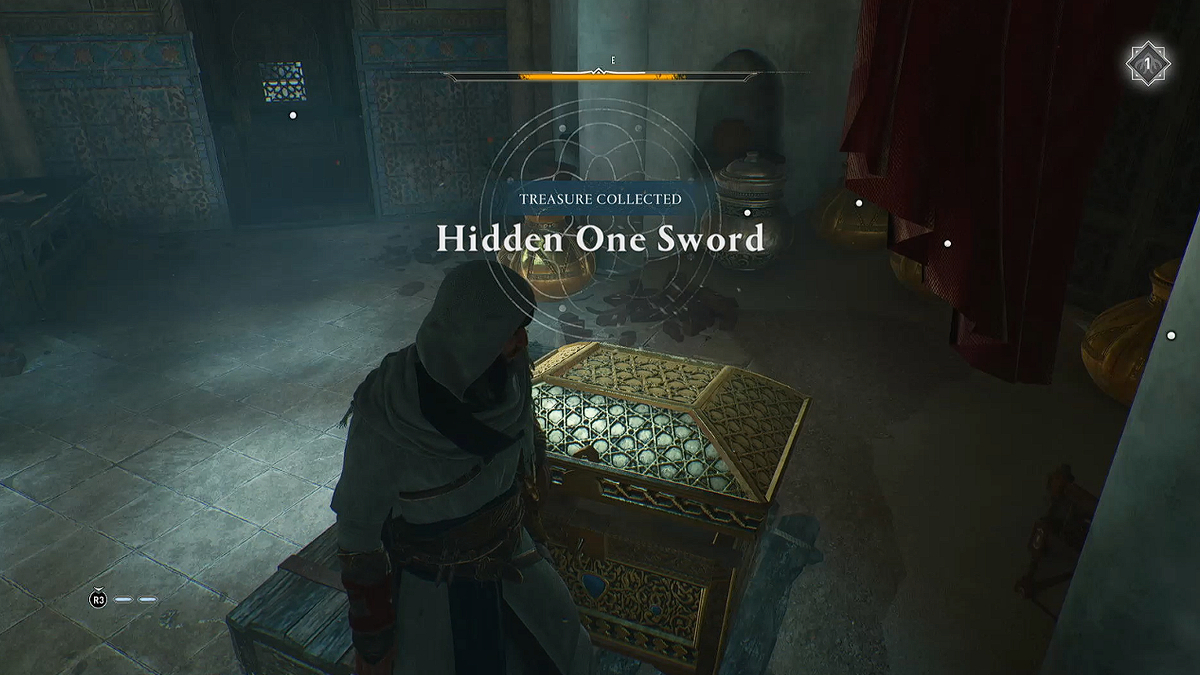




Updated: Oct 18, 2023 07:36 pm